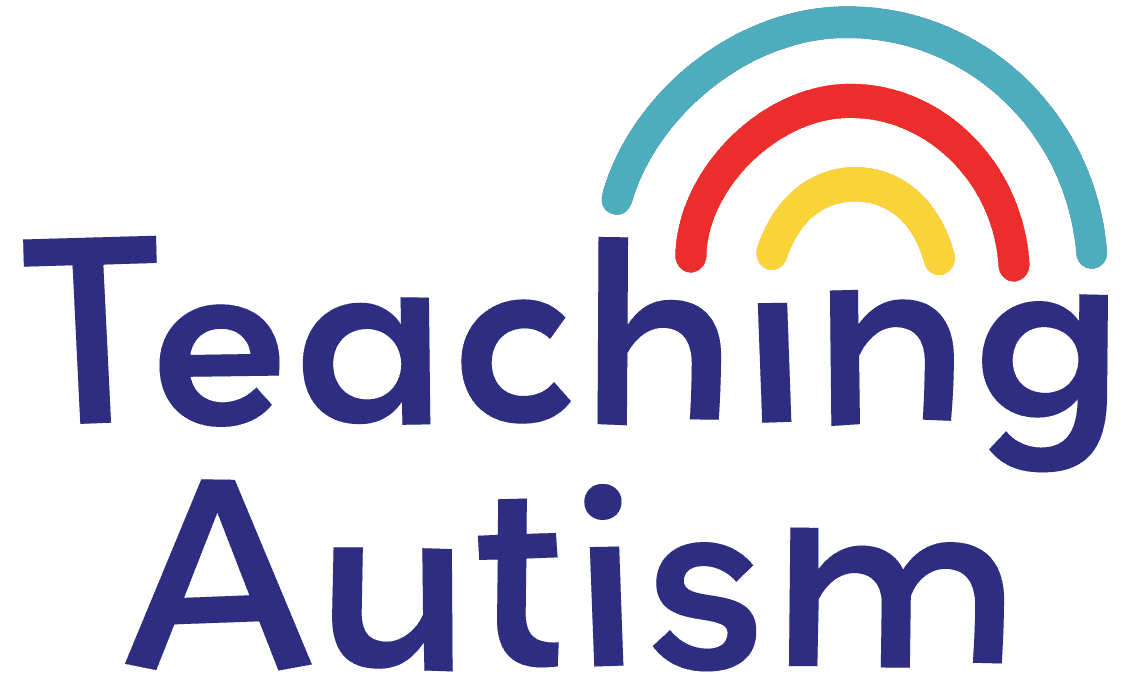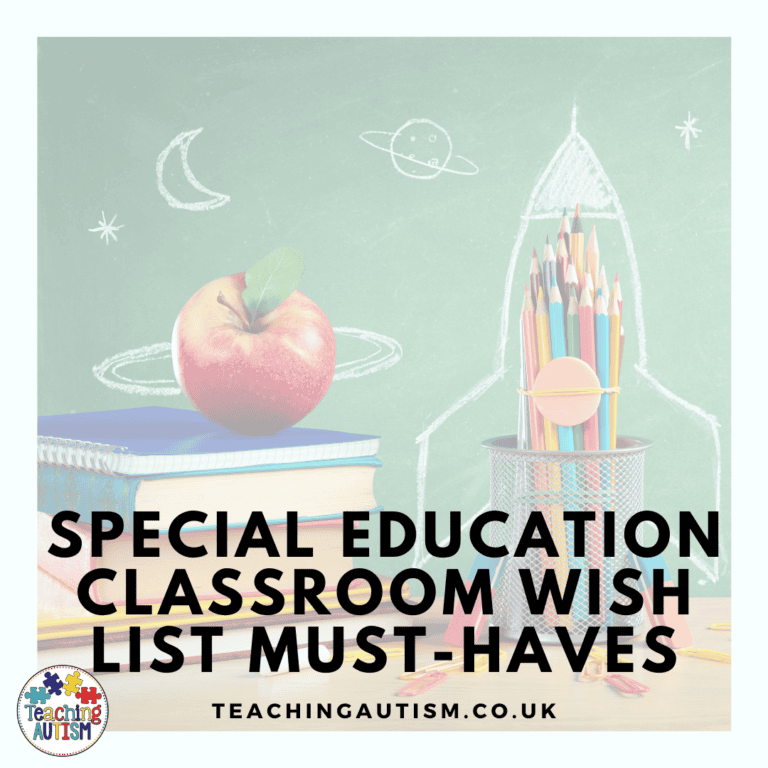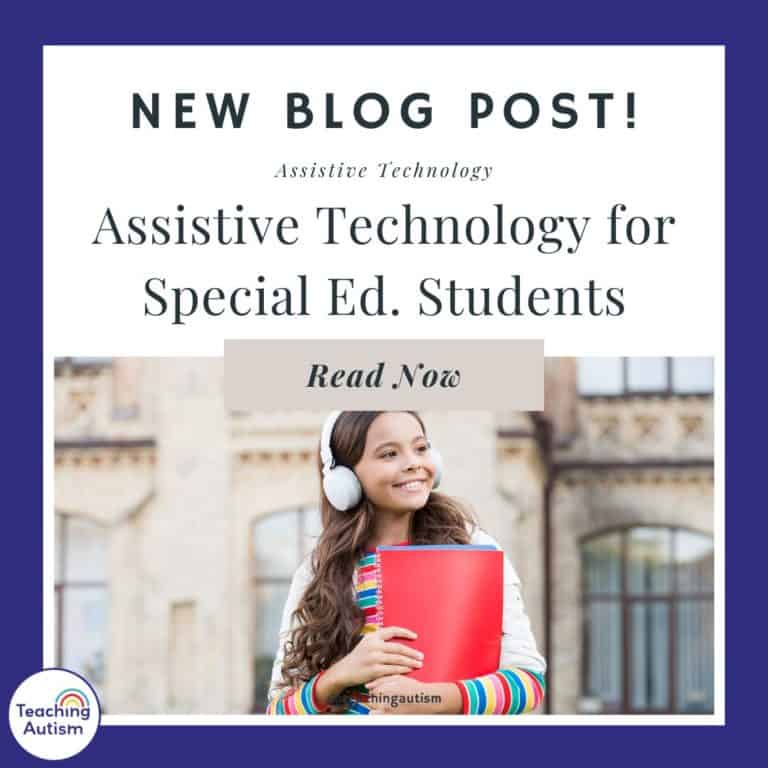10 Ways Special Education Teachers Can Use AI
AI is everywhere right now. Today I’m sharing 10 ways special education teachers can use AI as part of their teaching and in their classroom. If you haven’t heard about AI, here’s a quick overview.
What is AI?
AI, or artificial intelligence, is a technology that allows machines to perform tasks that typically require human intelligence. This can be things like learning, reasoning, and problem-solving. AI is becoming increasingly prevalent in many industries, including education.
How are Teachers Using AI?
Teachers are using AI to enhance their teaching methods and improve student outcomes.
One way AI is being used in the classroom is through personalized learning.
AI algorithms can analyze student data and provide customized learning experiences tailored to each student’s needs and abilities. This helps students learn at their own pace and in a way that works best for them.
Another way teachers are using AI is through chatbots. Chatbots are computer programs that can engage in conversation with students and provide immediate feedback and support. This can be especially helpful for students who need extra assistance but may not feel comfortable asking for help in person.
AI is also being used to grade assignments and assessments. This can save teachers time and provide more objective grading, as AI algorithms can analyze student work based on specific criteria and provide instant feedback.
Overall, AI is rapidly changing the landscape of education and providing new opportunities for teachers to improve student learning. As the technology continues to evolve, it will be exciting to see how it will be used in the future to further enhance education.
How to Use AI in Special Education
So now that you’ve had a little overview about what AI is and how teachers around the world are using it.. I want to share some ways that you can use it as a special education teacher.
1. Personalized Learning
This technology can help special education teachers to create personalized learning plans. This is especially helpful when we are trying to make those plans for students who have different and individual learning abilities and needs.
2. Speech Recognition
There are AI-enabled tools that work for speech recognition. These tools can help us to understand our students who may have speech impairments better. This one I think is especially amazing and I can’t wait to try it out!
3. Virtual Assistants
For many of us in the field of special education, we definitely rely on our assistants to help us and the students in our classroom. But now, with this new technology we can also use AI to become a sort of virtual assistant for us. They can help our students to improve social and communication skills.
4. Automated Grading
This one is definitely going to be a time saver for lots of us. How amazing that it can help us to grade our assignments and tests so fast and easy?! This means taking off a huge workload from our plates, and it means that it frees up our time.
5. Predictive Analytics
It can provide us with predictive analytics to identify our students who may need some additional support. This is great for helping us to identify when our students may need a little more support before they fall too far behind or something that may have been previously missed.
6. Cognitive Feedback
This intelligence is able to provide our students with real-time feedback. It will help our students to improve their cognitive skills.
7. Adaptive Learning
It can provide our students with more personalized learning experiences. This includes being able to adapt learning to their individual abilities, needs and preferred styles of learning.
8. Data Management
Whether you love it or hate it, data is a huge part of our jobs. But now it can be made easier! Because this technology can help us to manage our student data. This includes things like assessments and progress reports.
9. Virtual Reality
I haven’t used virtual reality with my students, but this technology does create this option for educators. Teachers will be able to use the technology to provide their students with fully immersive learning experiences. This is especially beneficial to help our students better understand certain concepts.
10. Assistive Technology
This technology will provide our students with tools that can help them access content, communicative more effectively and become more independent with performing tasks.
If you found this blog post helpful, please consider sharing it with your friends and colleagues on social media.
You may also find the following podcast episodes and blog posts helpful;
Thanks,
Nikki
P.S. Have you signed up for a 3 day free trial of our VIP membership yet? If not, click here to do it now and go and get access to a huge range of resources, templates, crafts and more for free.







